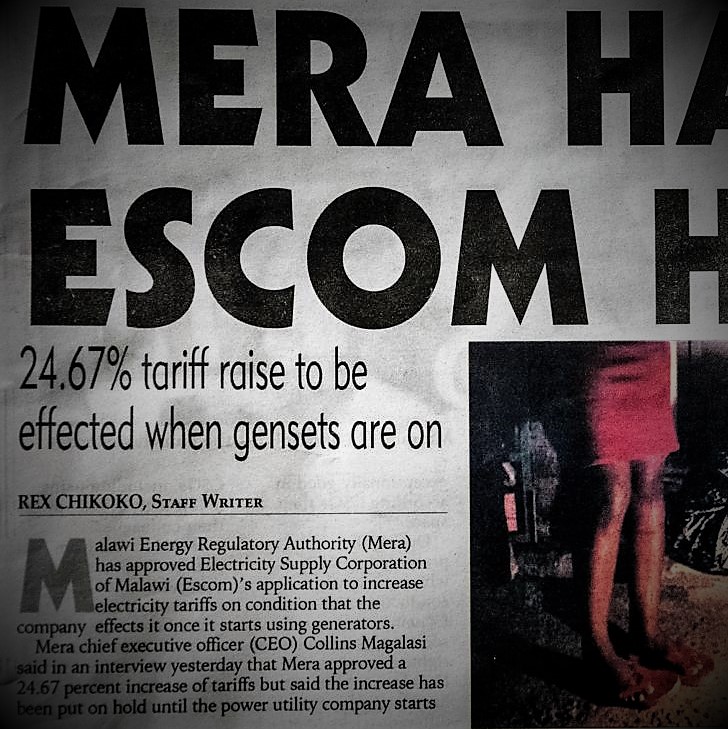
Malawi Energy Regulatory Authority (Mera) has approved Electricity Supply Corporation of Malawi (Escom)’s application to increase electricity tariffs on condition that the company effects it once it starts using generators.
Mera chief executive officer (CEO) Collins Magalasi said in an interview on Wednesday that Mera approved a 24.67 percent increase of tariffs but said the increase has been put on hold until the power utility company starts using generators.
“We have written Escom not to implement the approved tariffs because people have not yet started enjoying the benefits of the improved service. Until Escom starts supplying power from the generators, that’s when they can implement the tariff increase,” he said.
Escom applied for the tariff increase in anticipation of high costs of generating electricity using the diesel-powered generators.
Currently, Escom charges K58.80 per kilowatt hour and with the approved increase, the price of electricity per kilowatt is likely to jump to K73.23.
On November 15 this year, in a letter to Mera, Escom CEO Alexon Chiwaya informed the regulator that the company has engaged Aggreko Power Solution to supply 55MW generators.
“Escom has negotiated a two-year Power Purchasing Agreement with Aggreko Power Solutions for the 55MW of diesel generators which will be installed at Kanengo and Chichiri substations with the capacities of 20MW and 35MW, respectively.
“The agreement with Aggreko is that by December 24, 2017 the 20 MW for Kanengo should be commissioned while the 35MW for Chichiri should be commissioned by December 31, 2017,” Chiwaya wrote.
In the agreement, among other things, Escom agreed to supply the fuel to the generators saying in the letter: “In view of this, we also agreed that Escom should be responsible for provision of diesel to the two sites. You may wish, therefore, to note that Escom in now finalising an agreement with National Oil Company (Nocma) so that the diesel should be supplied by them.”
Until last week, Malawi had been experiencing extended load shedding that resulted in some areas being in the dark for over 25 hours. This followed reduced generating capacity due to low lake levels that necessitate Egenco’s hydro-power generation.
But following heavy downpours in most parts of the country, Egenco announced last week that the generation capacity had improved from 147MW to 200MW. This is still below the 350MW suppressed national requirement.
President Peter Mutharika told the nation recently that the country was likely to start using diesel-powered generators for the production of electricity by Christmas. However, it was not known whether the deadline set by the President will be met.
